
Book a Consultation
Thank you!
Your form has been sent successfully.

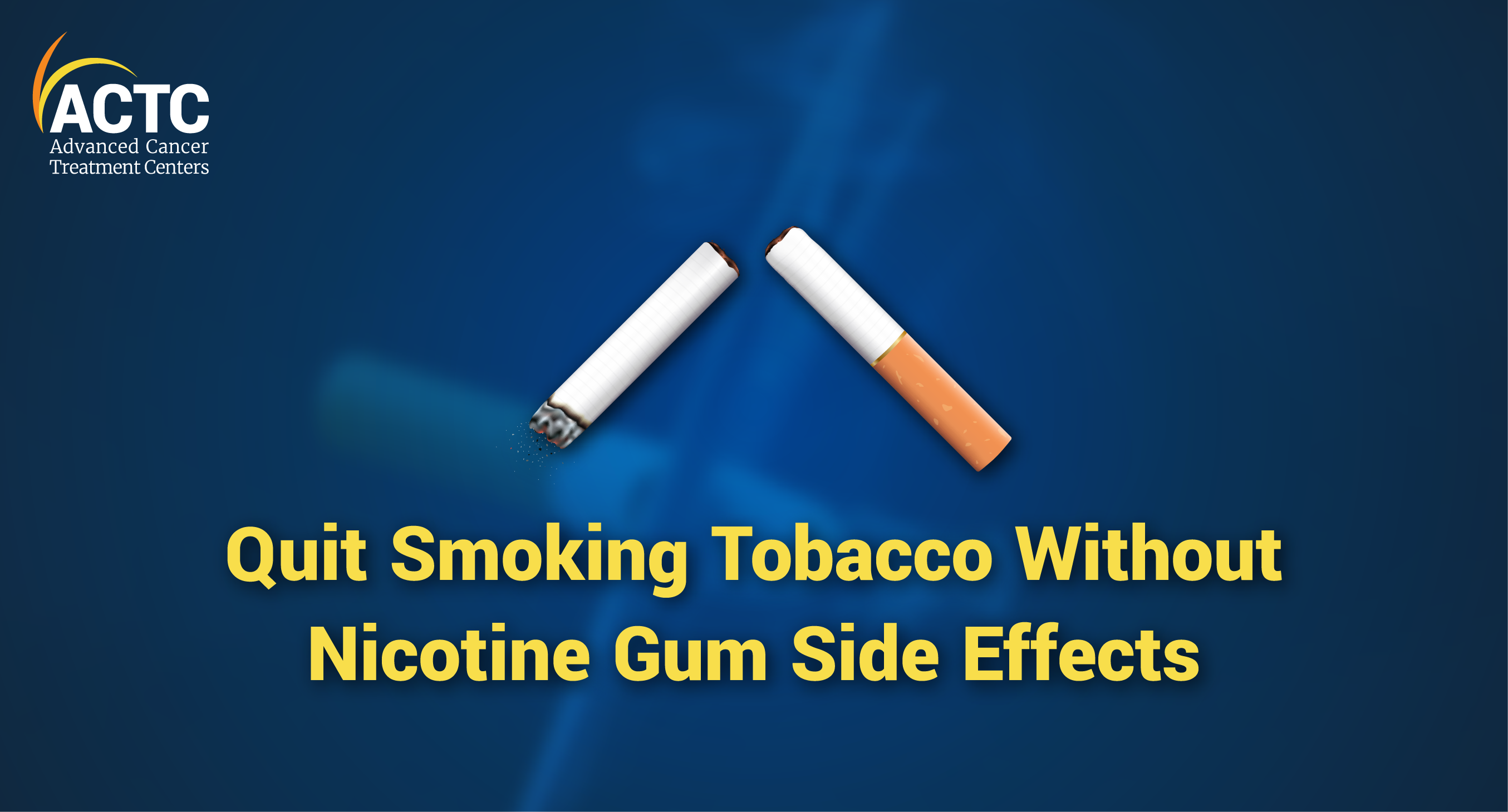

June 14, 2022
When you smoke, about 7000 chemicals enter the body. These chemicals include 69 carcinogens (substances that cause cancer), which impact the body's oral, respiratory, and digestive systems.
Tobacco products contain nicotine, an extremely addictive drug. The addictive nature of nicotine often makes quitting tobacco difficult. As cigarettes deliver nicotine to the brain within seconds, many times smokers have difficulty quitting it.
Nicotine gum is used as an aid in quitting smoking. It reduces the urge to smoke. However, it should be prescribed by a doctor after proper counseling, and support group sessions. Otherwise, excessive nicotine gum consumption can have side effects such as:
Consult your healthcare professional if you experience these side effects while using nicotine gum or afterward.
Does nicotine gum cause cancer? There is no evidence that nicotine gum causes cancer. But it does have side effects. Even if it is unclear that nicotine gum causes cancer, it is advisable to follow your physician’s instructions for its consumption.
If you are unsure as to whether taking nicotine gum is safe or not, it is better to try quitting smoking entirely. It may not be easy, but a properly planned approach to quitting smoking will always be worthwhile in the long run.
Quitting smoking is more difficult than it sounds. Smoking cessation depends upon the age or how long a person has been smoking. The process may differ from person to person due to smoking frequency and health habits. Counseling, stop-smoking medications, and treatments recommended by doctors can help. Follow the steps mentioned below that can assist you in quitting smoking.
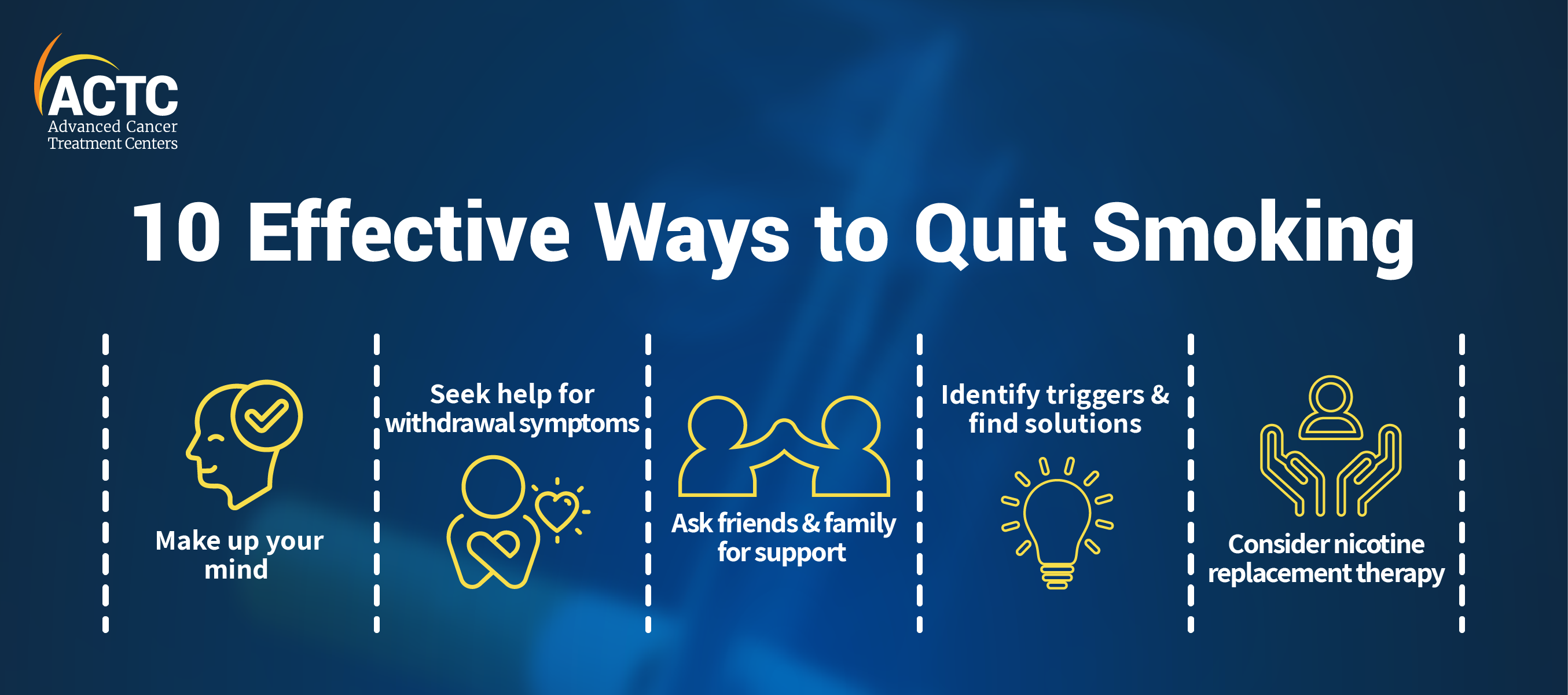
One of the first steps is to figure out why do you smoke. If you understand why you smoke, you can better prepare yourself to quit. Make sure you're absolutely certain about your decision to stop smoking. You must want to understand why you're quitting smoking. Here are a few suggestions that can help:
Create a quit plan by identifying your smoking triggers, learn how to deal with cravings, and trying different ways to quit. Attending smoking cessation programs where problem-solving and coping skills to deal with withdrawal symptoms are taught.
Over time, your body becomes accustomed to nicotine. Once you stop smoking, your body needs to adjust to living without nicotine. This is called withdrawal. Withdrawal symptoms are unpleasant, and they take some time to resolve. While physical symptoms such as restlessness, anxiety, and irritability usually fade within a few days to a week, cigarette cravings may persist. You may have to prepare yourself to deal with withdrawal symptoms in advance by talking to your healthcare professional and taking their advice on how to deal with them.
Try to set up a support system that can make quitting smoking easier for you. It can be a family member or a friend who is willing to walk with you on your entire journey. It is critical to express to them what you feel the moment you get the urge to smoke. Here are a few suggestions on how you both can work together to help you.
It's an opportunity to recognize when your desires to smoke are at its worst. Exploring triggers may help you decide on the best course of action. Try to resist the urge to smoke as long as possible. You can begin by trying quitting for at least 10 minutes, and then gradually increase the time until you reach your Quit Day. This may appear difficult at first, but it will become easier with experience. Smoking is often associated with certain activities, feelings, and people that trigger your urge to smoke. You can identify your triggers and consciously avoid them by changing your routine to something else such as:
Take medications as instructed by your healthcare professional. Prescribed medications help to alleviate withdrawal symptoms including sadness and concentration issues. Talk to your doctor about when to start and how to use the medication. Find out what side effects to look out for and how to report them. Make a note on your calendar to remember to take medication.
You can also go for Nicotine replacement therapy (NRT) which can help ease the nicotine withdrawal symptoms. However, teenagers, pregnant women, and anyone with serious medical issues should avoid NRT or only use it per prescription.
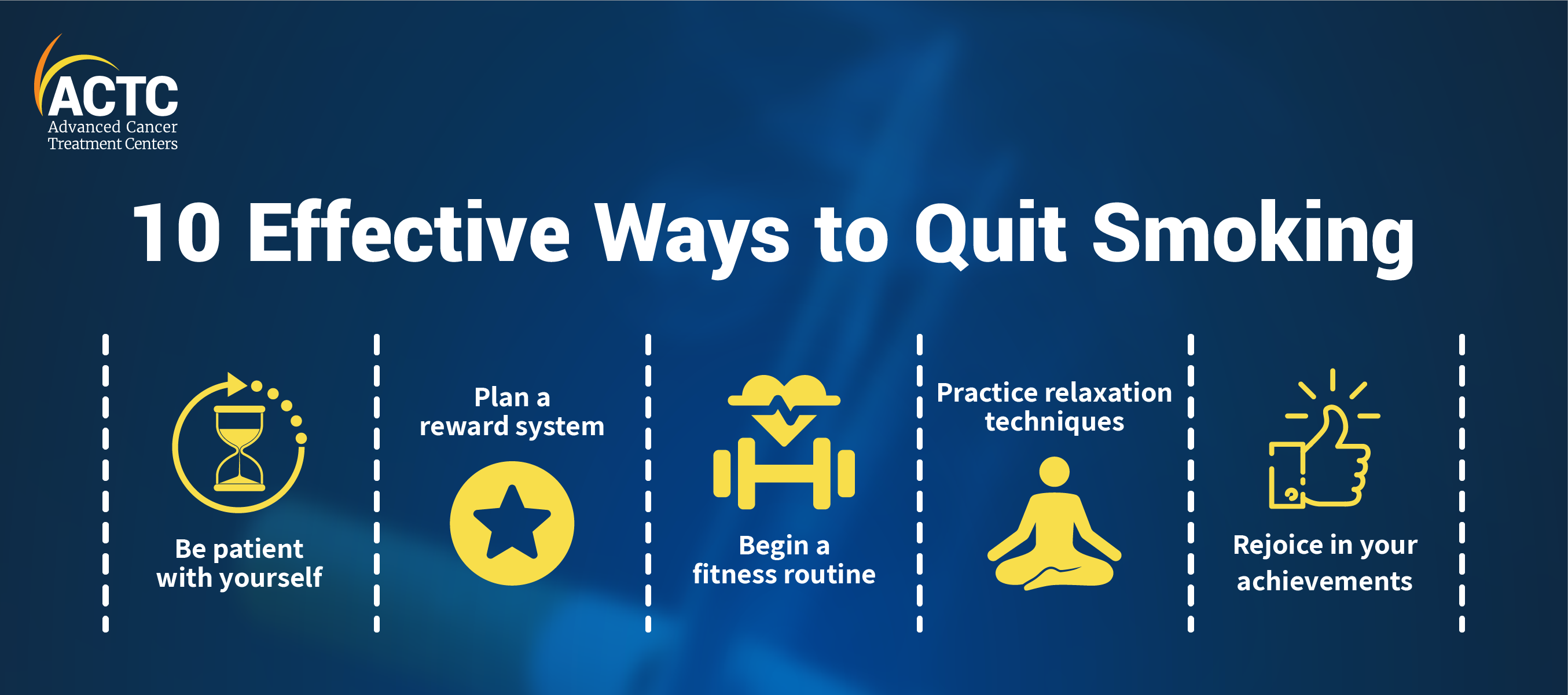
The desire to smoke again even when you have quit is very common. It's important to realize that whether you give in to the temptation or not, it will pass. Getting rid of a smoking habit often requires several attempts. Don't get disheartened if you feel the strong urge to smoke again. Instead, consider what caused your relapses, such as your emotions or the environment. Use it as a chance to strengthen your resolve to quit.
To curb cigarette cravings, write down or express out loud why you want to stop smoking. Consider a solid reason that outweighs the urge to smoke and resist tobacco cravings. While making a significant impact on your health, remind yourself of the benefits you will get by quitting smoking:
You're better off doing something than doing nothing to overcome an impulse. Every time you resist the urge to smoke, you're one step closer to quitting smoking for good.
Quitting smoking may result in weight gain. The usual weight gain is less than 10 pounds. Maintain a healthy balance of physical activity and calorie consumption. This will assist you in reaching and maintaining your ideal weight. A nutritionist or a dietician might be beneficial in this case. Being physically active can help to reduce nicotine cravings and alleviate withdrawal symptoms. Mild physical activity, such as walking your dog or gardening can be beneficial.
Find strategies to relieve tension to cope with your mental stress. You can try taking a warm bath, practicing deep breathing, getting a massage, or performing stretches. Try not to worry about the future but focus on the present. Practice mindfulness and meditation or work with your creative side through music, art, dance, or craft.
Did you make it through the day without lighting up a cigarette? Have you survived a week without smoking? Your small victories will contribute to your ultimate goal of quitting smoking. Every time you overcome the urge to smoke a cigarette, you get closer to quitting. When you are tempted to smoke or chew tobacco, think about what you can do to overcome this urge. Try chewing on carrots, pickles, apples, celery, sugarless gum, or hard candy instead of smoking. This will keep you busy and may reduce the urge to smoke.
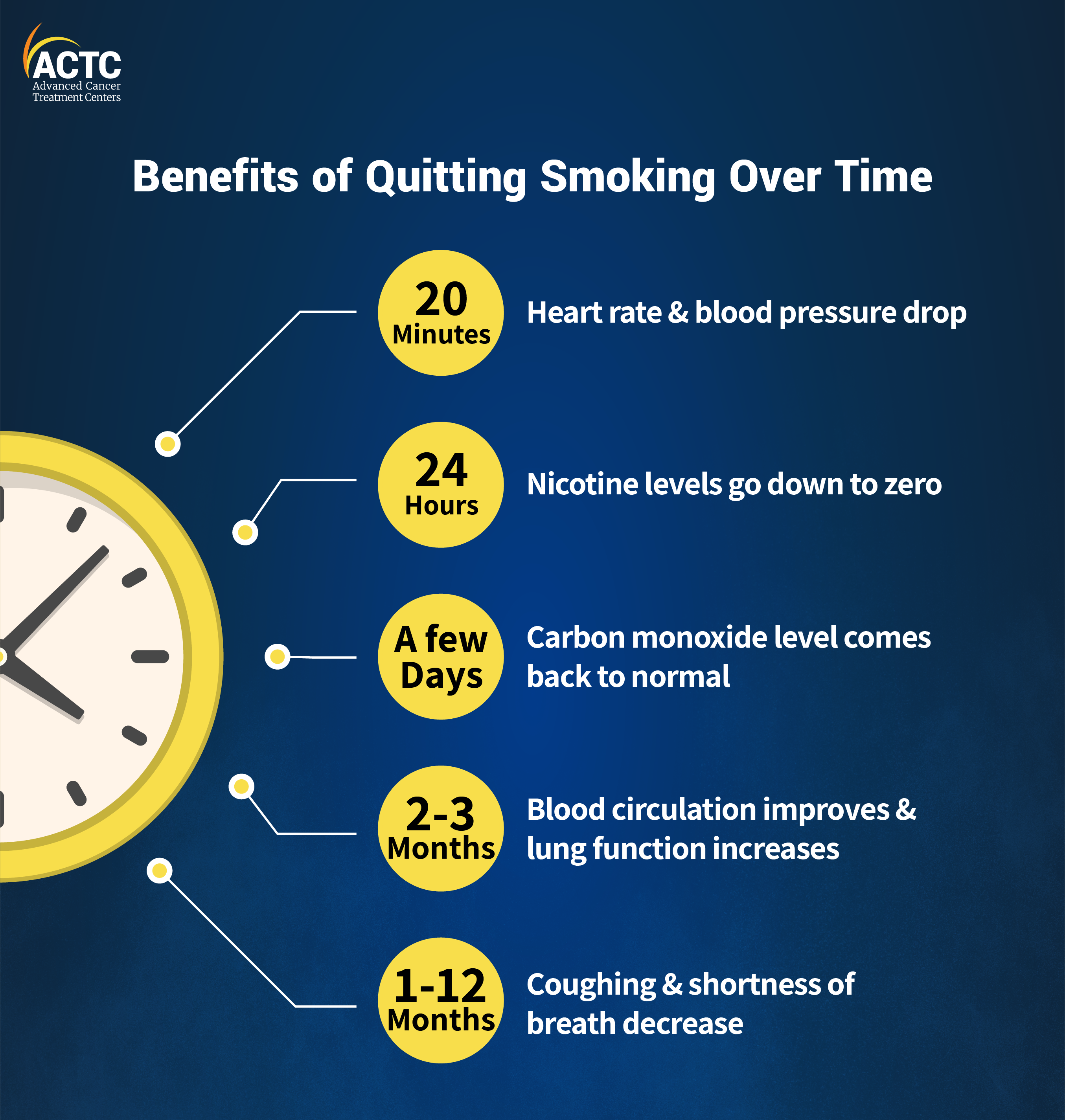
It is never too late. Even within minutes of smoking your last cigarette, your body begins to recover. Check the difference that your body will experience in the period after quitting.
20 minutes - Heart rate and blood pressure drop
24 hours - Nicotine level in your body drops to zero
A few days - The carbon monoxide level in your blood drops to normal
2-3 months - Blood circulation improves and lung function increases
1-12 months - Coughing and shortness of breath decrease after quitting
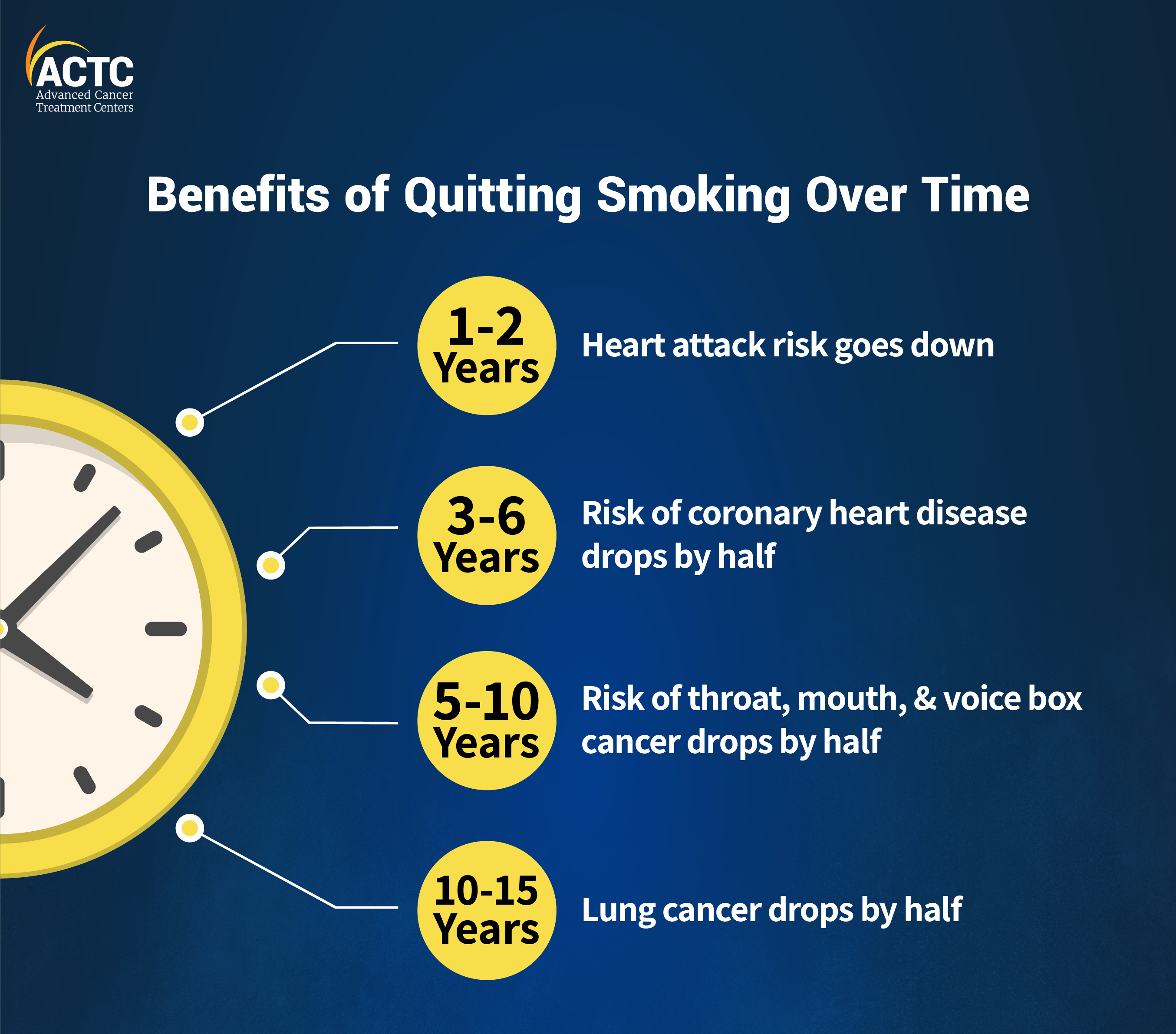
1-2 years - Your risk of heart attack reduces
3-6 years - The added risk of coronary heart disease drops by half
5-10 years - The risk of throat, mouth, and voice box cancer drops by half
10-15 years - Your risk of lung cancer drops by half to that of a person who still smokes
Smoking makes cancer treatment difficult and ineffective. Even though you may have quit smoking, you may still run the risk of cancer recurrence or developing secondary cancer. For example, even if you have had lung cancer treatment, you may still be at risk of acquiring bladder cancer or any other cancer because of smoking. The sooner you quit smoking, the lesser the risks and the better the possible outcomes.
Quitting smoking helps improve the body’s ability to heal and respond to cancer treatments and therapies as well. However, it is crucial to make decisions related to cancer treatment carefully. If you are located in Brooksville, Florida, or live nearby, and you’re looking for cancer treatment centers, we are here to help you! Consult our cancer specialists and trained medical oncologists at Advanced Cancer Treatment Centers where we enable personalized care for cancer patients.
Schedule an appointment by calling 352-345-4565 to take advice on cancer treatment from our expert chemotherapy doctors available in Brooksville or Florida. If you are advised by the doctors to go for other cancer treatments such as immunotherapy, targeted therapy, or radiation oncology, our supportive radiation oncologists and care providers will help you to maintain strength, stamina, and quality of your life during and after your cancer care.
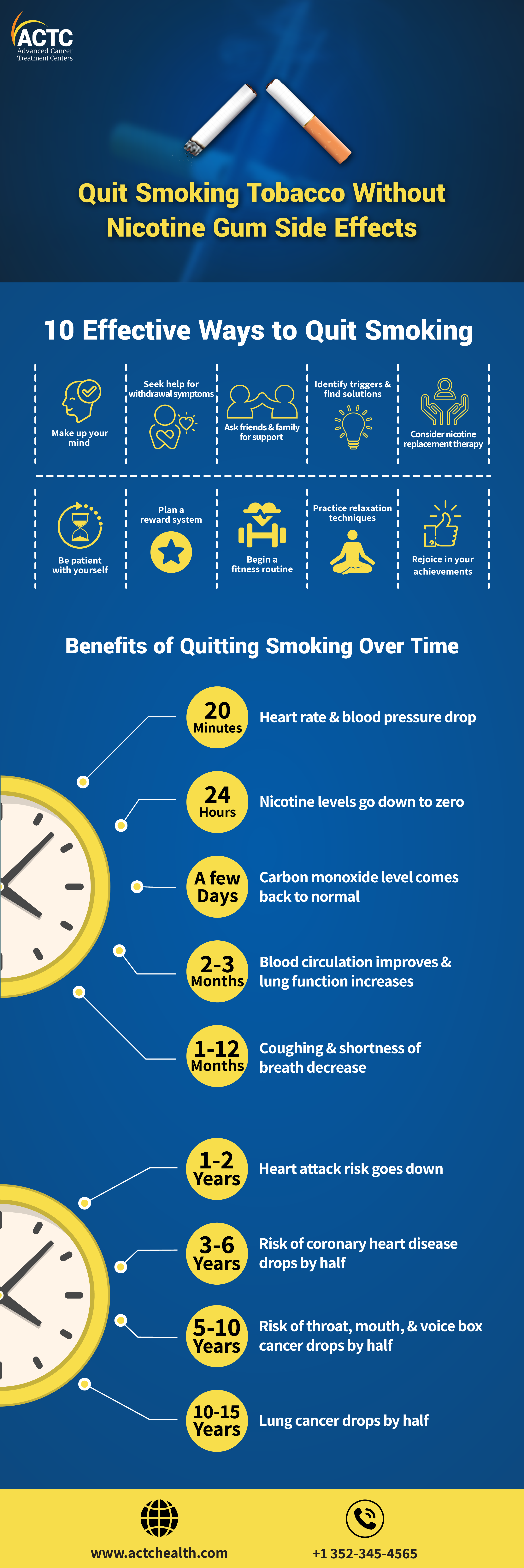


January 07, 2026
A chemo port is a small device placed under your skin that makes recei...
KNOW MORE

December 24, 2025
It's natural to wonder if testosterone replacement therapy (TRT) is sa...
KNOW MORE

December 24, 2025
A rash that will not calm down is scary, especially when it changes or...
KNOW MORE

December 24, 2025
Florida’s lung cancer burden remains significant and affects many fa...
KNOW MORE

December 24, 2025
A partial hysterectomy, also called a supracervical hysterectomy, is s...
KNOW MORE

December 24, 2025
Finding a rash on your breast can be unsettling, but remember, many ra...
KNOW MORE
